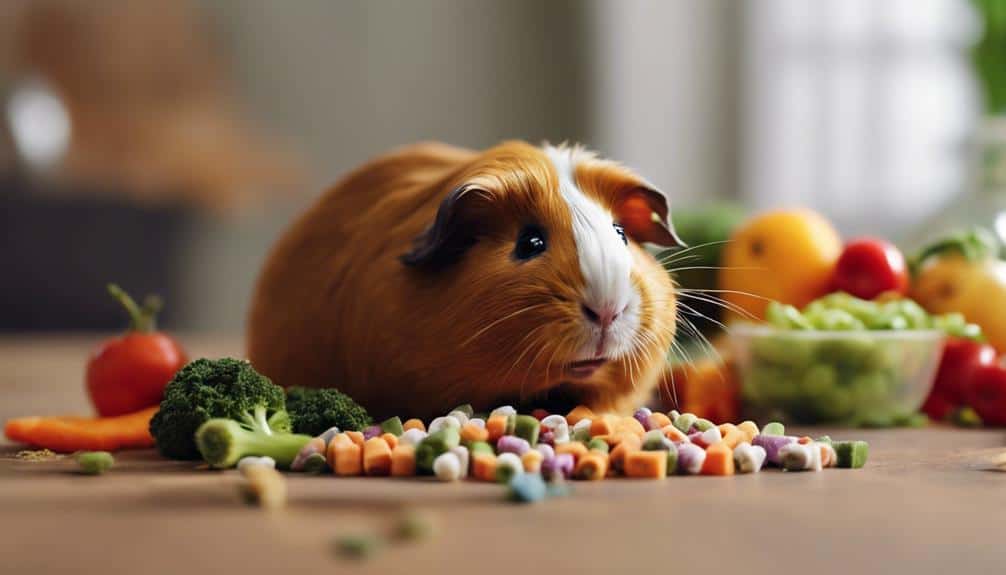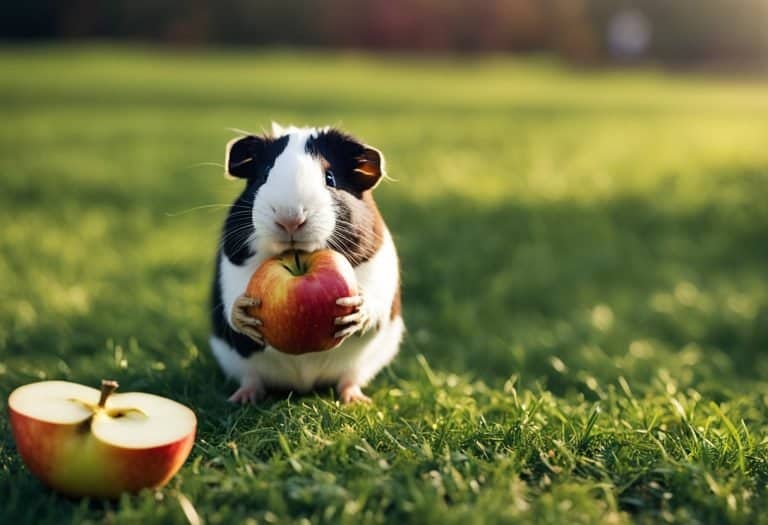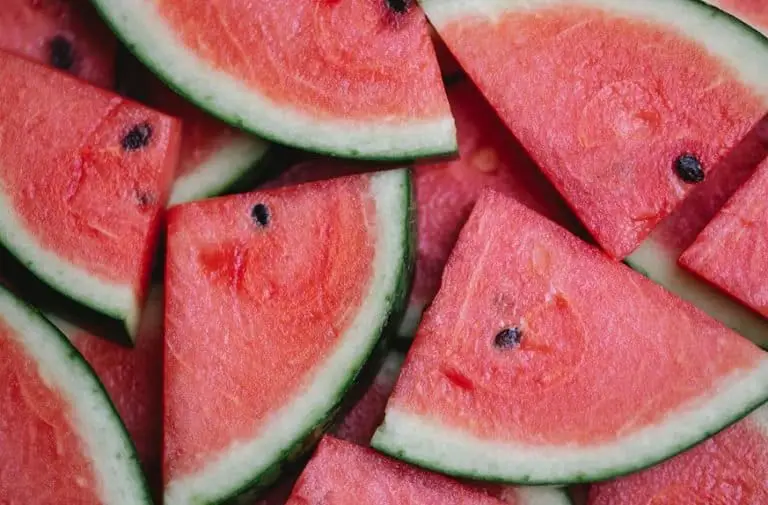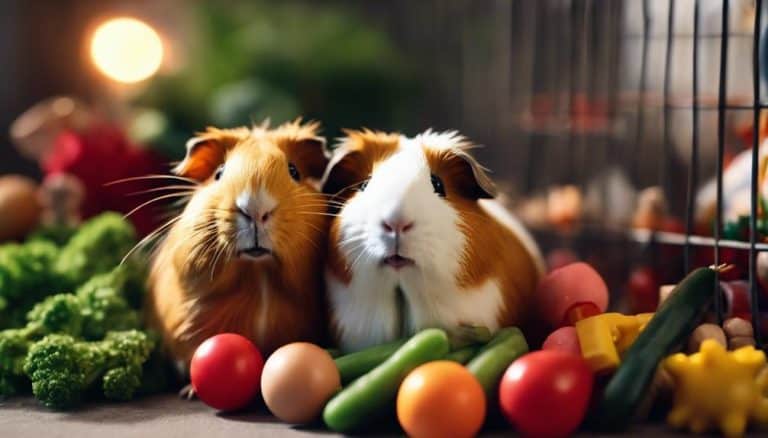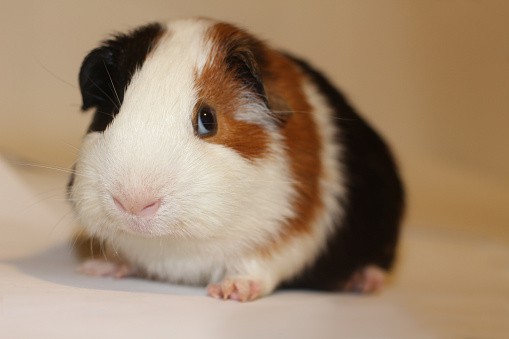How Guinea Pigs Can Eat Hamster Food Safely
Let’s unravel the mystery of how guinea pigs can safely consume hamster food, a topic that sparks curiosity among pet owners. Guinea pigs and hamsters may seem similar, but their dietary needs are distinct.
So, what precautions should be taken to make certain the well-being of your guinea pig when it comes to indulging in hamster food? Let’s explore the nuances and guidelines that can help you navigate this nutritional conundrum with confidence.
Safety Precautions for Feeding Hamster Food
When considering the safety precautions for feeding hamster food to guinea pigs, it’s imperative to understand the significant health risks associated with this practice. Guinea pigs need a specific diet tailored to their nutritional requirements, which hamster food doesn’t provide adequately.
Guinea pigs require a constant supply of Vitamin C in their diet, as they’re unable to synthesize it themselves. Hamster food, designed for the dietary needs of hamsters, lacks this essential nutrient, leading to potential nutritional imbalances if fed to guinea pigs.
It’s essential to prioritize that guinea pigs eat a diet that includes Vitamin C-rich foods such as fresh vegetables, fruits, and specialized guinea pig pellets. Neglecting this aspect can result in serious health issues for these small animals.
Hence, it’s essential to prioritize the proper nutrition of guinea pigs and avoid feeding them hamster food to maintain their well-being and prevent potential health complications.
Nutritional Considerations for Guinea Pigs
Nutrition plays a vital role in maintaining the health and well-being of guinea pigs, with specific emphasis on meeting their unique dietary requirements. Guinea pigs have a vital need for vitamin C in their diet to prevent health issues like scurvy.
Commercial guinea pig food is specially formulated to provide the necessary nutrients, including vitamin C, essential for their well-being. It’s important to note that hamster food lacks this essential nutrient, making it unsuitable for guinea pigs. Feeding hamster food to guinea pigs can result in digestive issues and potential health problems due to the lack of proper nutrition.
To vital the optimal health of guinea pigs, it’s imperative to provide them with a balanced diet tailored to their specific dietary needs. Meeting their nutritional needs through appropriate guinea pig food is essential for preventing health complications and ensuring their overall well-being.
Transitioning to Hamster Food
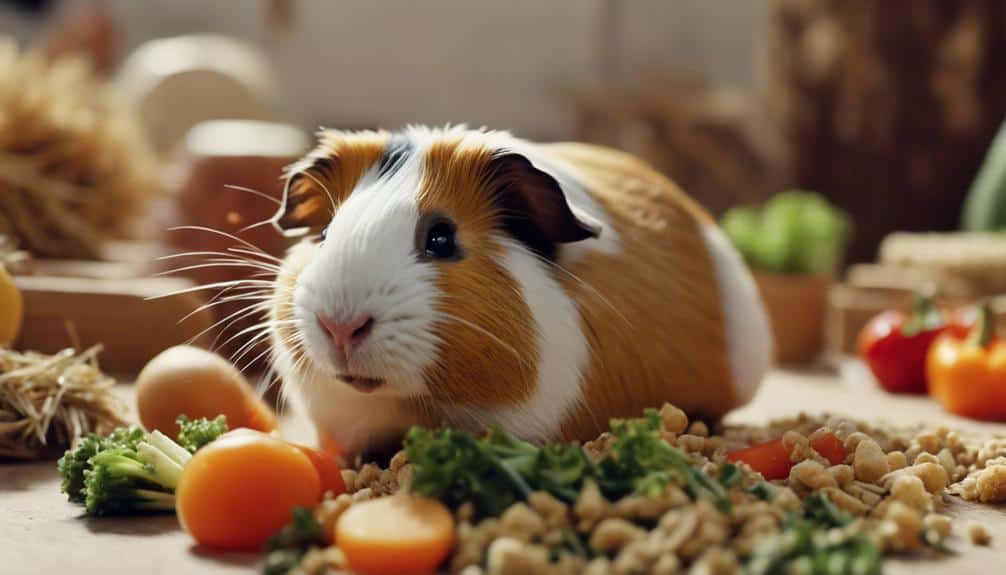
In consideration of the dietary differences between guinea pigs and hamsters, it’s important to gradually introduce small amounts of hamster food to guinea pigs while closely monitoring for any signs of digestive upset or changes in stool consistency.
- Gradual Change: Mix small amounts of hamster food with their regular diet to ease the change.
- Monitor Closely: Watch for any digestive issues or changes in stool consistency during the change period.
- Avoid Toxic Ingredients: Make sure that the hamster food doesn’t contain any harmful or toxic ingredients for guinea pigs.
- Consult Professionals: Seek guidance from a veterinarian or small animal nutrition expert before introducing hamster food.
- Supplement, Not Replace: Remember that hamster food should only supplement a guinea pig’s diet, not replace their primary food source.
Introducing hamster food should be approached with caution and care to meet the specific dietary requirements of guinea pigs. By following these steps and seeking expert advice, you can safely incorporate hamster food into your guinea pig’s diet while promoting their well-being.
Monitoring Guinea Pig Health
Regularly monitoring the health of guinea pigs is essential to guaranteeing their well-being, especially when introducing new food items like hamster food into their diet.
When incorporating hamster food into a guinea pig’s diet, it’s vital to monitor them for any signs of digestive issues such as diarrhea, bloating, or changes in stool consistency. Additionally, keeping a close eye on their weight is important to prevent them from gaining excess weight due to the different nutritional content of hamster food.
Observing any alterations in the guinea pigs’ behavior, such as decreased activity levels or changes in appetite, can also provide valuable insights into their health status after introducing hamster food. Regularly checking their teeth is essential to ensure they aren’t experiencing dental issues from consuming inappropriate food.
If any health concerns or unusual symptoms arise, it’s advisable to consult a veterinarian promptly to address any potential issues related to their diet.
Expert Recommendations for Feeding
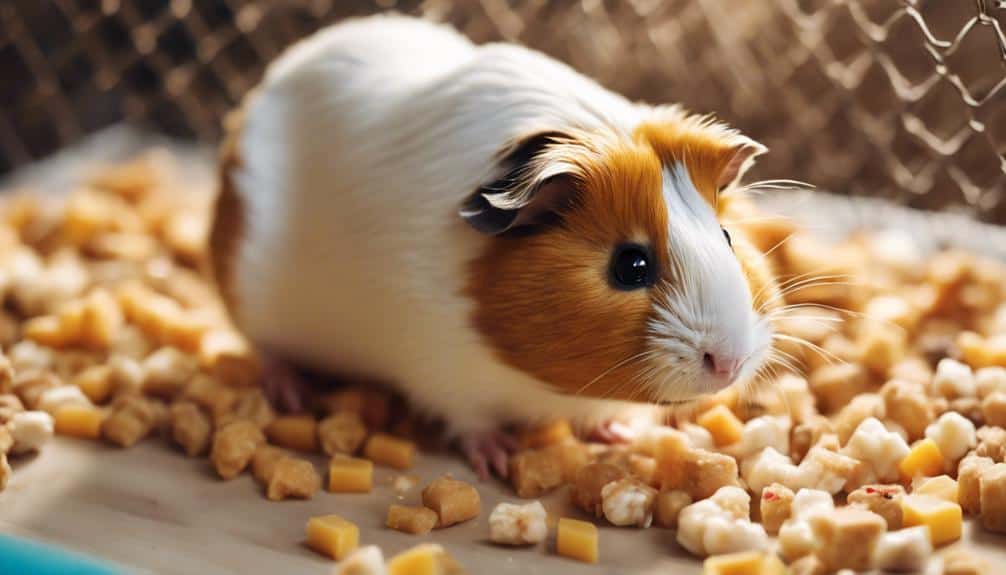
When considering the dietary needs of guinea pigs, it’s important to seek expert recommendations for feeding to guarantee high-quality health and nutrition.
- Guinea Pigs: They require specific dietary requirements tailored to their needs.
- Hamster Food: Should be avoided for guinea pigs due to the lack of essential vitamin C.
- Dietary Requirements: Guinea pigs need a diet rich in fiber and vitamin C to stay healthy.
- Health: Feeding hamster food to guinea pigs may lead to digestive issues and potential health problems.
- Nutrition: Providing guinea pigs with food formulated for their species ensures they receive the proper nutrition they need.
Ensuring that guinea pigs receive the necessary nutrients is crucial for their well-being. By offering a diet rich in fiber and vitamin C specifically designed for guinea pigs, you can help prevent health issues and promote excellent health. Remember, tailored nutrition plays a key role in maintaining your guinea pig’s overall health and happiness.
Conclusion
In summary, it’s vital to remember that while guinea pigs can eat hamster food safely in small amounts, it’s important to prioritize their specific dietary needs for the best health.
As the saying goes, ‘you are what you eat,’ so ensuring that guinea pigs receive a balanced diet rich in fiber and Vitamin C is essential for their well-being.
Consult with a veterinarian or expert in guinea pig nutrition for personalized recommendations on feeding your furry friends.

